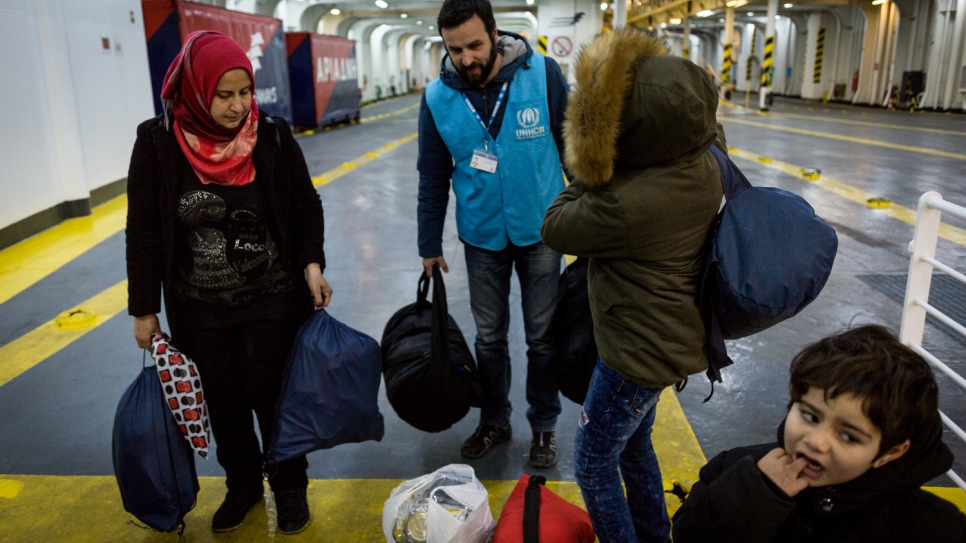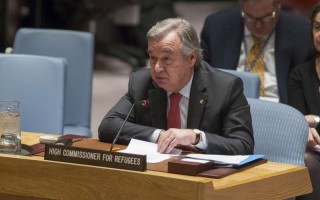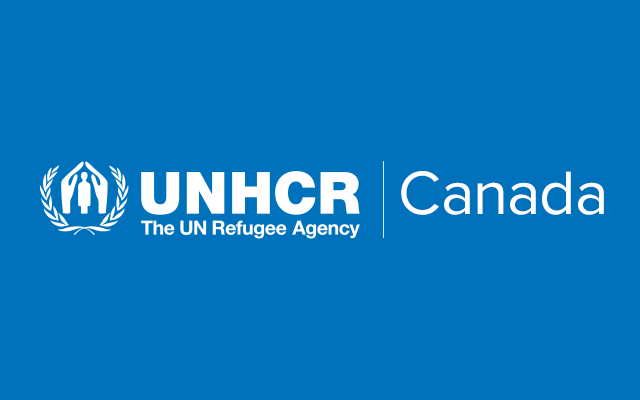After losing a son and her husband back in Syria, Falak fled with her two surviving sons. Now, they have finally found a space to heal in Greece.

A UNHCR staff member helps Falak and her sons carry their bags onto a ferry bound for Athens. © UNHCR/Achilleas Zavallis
Falak Kourini lost a son and her husband back in Syria. Now, after finding safety on the Greek island of Lesvos, she is finally able to seek medical treatment on the mainland for the youngest of her two surviving sons, who was badly injured in a rocket attack.
“The doctors told me it’s better on the mainland because my son will need more medical help,” explained Falak, 40, who has been moved with her sons to a government-run shelter in the Greek city of Larissa.
Falak and her family are among thousands of asylum-seekers who, with UNHCR’s help, have moved from the Aegean islands to the mainland, where better accommodation and facilities are available. Since June, UNHCR has supported the transfer of 5,556 people into government-run shelters and UNHCR accommodation.
“The situation in Syria is not for living.”
Priority has been given to vulnerable cases like Falak, who fled her home in Idlib, Syria, last August with her sons Mohamed Morad, 5, and Samir, 14. She wanted to leave the war-torn region earlier, but had been waiting for news of her missing husband. Then a rocket fell on her house, killing one of her three sons and maiming her youngest, Morad.
The little boy was rushed to hospital, where Syrian doctors only just managed to save his left leg in a series of complex operations. He needed further medical attention but, after the attack, Falak was in a hurry to leave the country.
“The situation in Syria is not for living,” she said of the conflict, which is approaching its sixth tragic anniversary in March. “Every day I looked at my sons’ faces and they were frightened, scared of the bombs. Even now, every time we hear sounds like an aeroplane or like bombs they get very scared. It was difficult, but I knew I had to get out of Syria or die in the attempt. I’d do anything for my sons, to find better life for them.”
Just ten days after Morad’s operation, Falak and her two sons crossed the Turkish-Syrian border on foot. She paid a stranger to carry Morad, who couldn’t walk, along the mountain path, while border guards shot into the air around them.
But by the time they reached the western coast of Turkey, the little boy’s health had taken a turn for the worse. Without access to post-operative drugs, his left leg had become dangerously inflamed.
“I thought, when I get to Turkey I will find better treatment for him. But then he started to get inflammation in his leg,” said Falak. “I decided I had to hurry up and leave.”
Desperate to find medical attention for her son, Falak paid smugglers to take her family on a flimsy boat into Greek waters. They were picked up after a frantic hour at sea by the Greek Coastguard, who took one look at Morad and sent him straight to hospital on Lesvos island.
“I knew I had to get out of Syria or die in the attempt.”
Falak and her sons spent the next three weeks in a municipal-run accommodation facility at Kara Tepe, before UNHCR found them space in a nearby apartment, run by local partner Iliaktida. There, Morad began a remarkable recovery. Four months and another operation later, he’s now running around like any other boy his age.
But doctors have said he will need further treatment on the mainland and referred Morad to a specialised bone unit in Athens, a four-hour car journey from the family’s new accommodation in Larissa. Falak knows her son will be better off on the mainland, but after all she has been through, she finds it difficult not to worry.
“Of course, we’re much happier here now that we are safe. But anyone would be afraid if you don’t know what is ahead of you. I have two children and one of them is ill, it’s normal to worry. Alone, it’s very difficult to decide what to do.”
“When I lost my son I was so afraid for the others. It’s not for me I travel – I travel for my sons, to give them life.”




